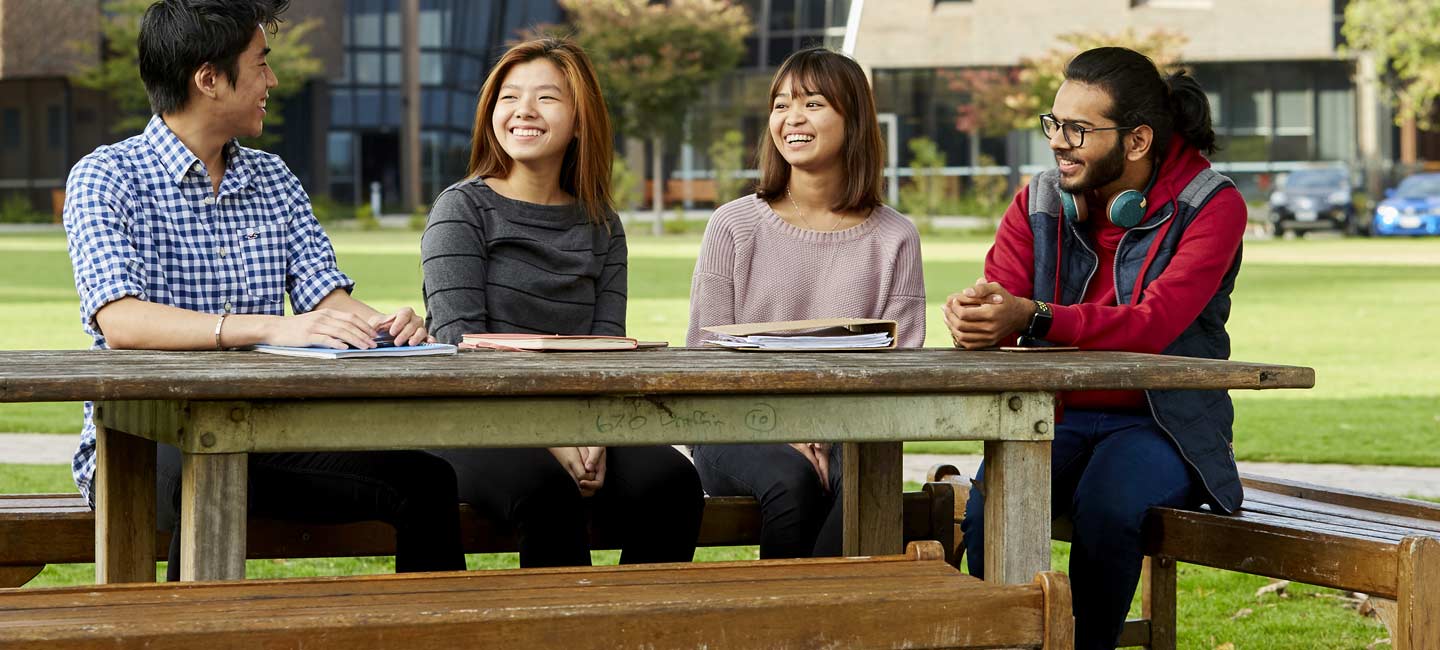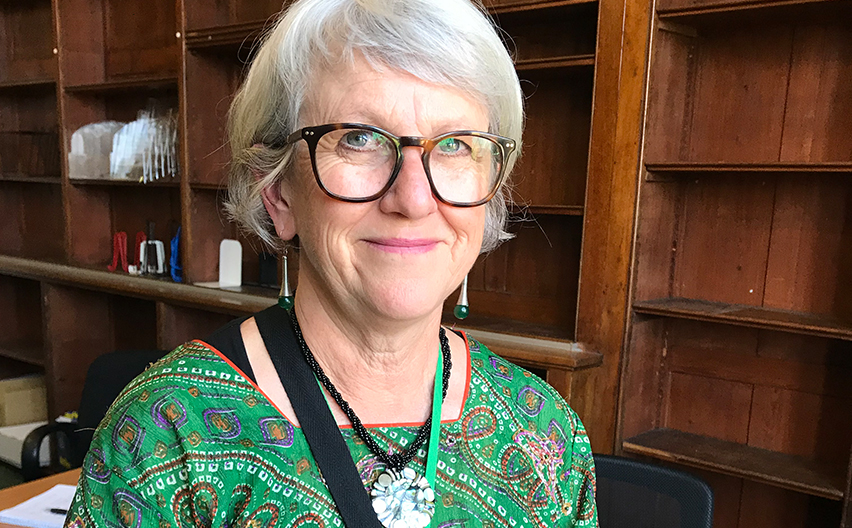


When Neralie Hoadley came to teach Foundation Studies at Trinity 25 years ago, things were a little different. The education landscape was pre-digital in 1995; no iPhones or iPads, and email was only just catching on. Pens, paper, textbooks, photocopiers and whiteboards ruled, and forms were couriered. It was old-style teaching and learning … and undoubtedly held less distractions for students.
Neralie was employed by Leigh Dib, one of the founders of Trinity’s Foundation Studies program. Leigh encouraged Neralie to come to Trinity to teach English for Academic Purposes (EAP), telling her that ‘Trinity is very focused on overseas students, and those students are delightful. You’ll love them!’. Already experienced in teaching EAP and migrant education at RMIT, Victoria University and the Centre for Adult Education (CAE), Neralie was sold.
‘I found that the students were different at Trinity,’ says Neralie, reflecting on the good fortune of her move. ‘The admissions staff do a good job of recruiting students who are suited to the demands of the program. They are open to challenges and exploring new ideas. Some of them come from very protected backgrounds and it’s wonderful to see their evolution to become more open and inquisitive. Sometimes it takes a while, but being a part of that is very rewarding.’
The gardening club has been a particular highlight of Neralie’s time at Trinity. This non-curriculum program began behind the buildings at Royal Parade and now operates near the Old Warden’s Lodge on Trinity’s main campus (COVID restrictions notwithstanding). Gardening has given many students an opportunity they may have never had before, to ‘get their hands in the soil’ and to value activities other than devices and the digital world. Neralie takes a small group under her wing each year, and seeing students exploring and evolving in the garden is a satisfying experience all round. Students choose from growing food, flowers and herbs, and she’s also had a hand in creating a worm farm.
‘Probably one of our greatest challenges as teachers is that as students become more immersed in the digital world, they become less comfortable with face-to-face teaching, and social interaction generally. Their thoughts can easily be highjacked by stimuli. How we compete with that as teachers is one of our biggest challenges, and teaching students to be aware of and manage those distractions is an essential skill.’
While constantly adjusting her own skill set, Neralie is committed to passing on valuable skills to her students. And when she hears that these are life-changing, it fills her with pride. Past students have visited and written to Neralie, and one ‘beautiful letter’ from a student said:
‘I learn not only the literary features, but also deep thought about life and the world. Literature gives me the experience which I have not experienced by myself. It gives me the capacity to put myself in the situation of the character and imagine what they will feel and think rather than just make simple moral judgement. These not only change my thoughts towards literature, but also my thoughts on life and many other things.’
Another student said the program had given them ‘spiritual freedom’. One thanked her for being kind and patient, as they had been going through a difficult time in their lives.
‘As a teacher, these comments are treasured, as they let you know that you’ve made a real difference to the lives of those students. And that’s what we hope to do.’
By Paulette Trevena
